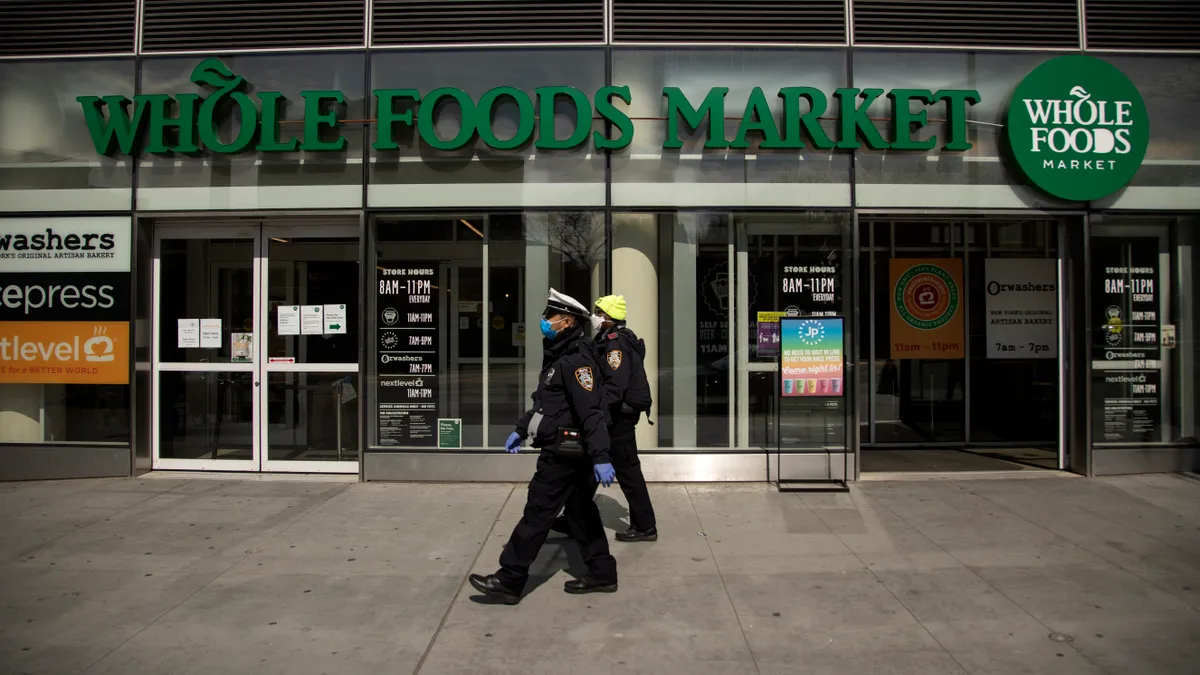Whole Foods Market did not violate its workers' rights by banning Black Lives Matter apparel, a National Labor Relations Board judge ruled Wednesday. BLM gear was not protected by the National Labor Relations Act because it was unrelated to the jobs in question, the administrative law judge determined.
Plaintiffs who wore BLM-related face masks and other garments said they did so to make their co-workers feel safe and expressed their belief that doing so upheld Whole Foods’ values of providing a safe work environment.
The NLRB General Counsel argued that workers perceived Whole Foods’ enforcement of its dress code to be racist and thus discriminatory – rendering their defiance protected activity.
The NLRB judge said that acting in concert with one another does not give employees “carte blanche” to disobey an otherwise valid rule, nor makes such a rule unenforceable. For example, when a collective bargaining agreement includes a grievance procedure, “the general rule” is to “comply (with the rule) then grieve, lest the employee(s) be found to be insubordinate,” the judge, Ariel Sotolongo, wrote.
Additionally, the judge said, there was no objective evidence supporting the allegation that Whole Foods had racially discriminatory motives for its stance — nor was there objective evidence that the employees’ goal in wearing BLM gear was to counter racial discrimination.
Attorneys at the Spitz Law Firm noted in a blog post that in times of sociopolitical crisis, many companies turn to “[prohibiting] employees from wearing any such racial equity paraphernalia in the workplace.” The question for employers then becomes the longevity of the solution, according to attorneys at the employee-side labor law firm; the firm wrote, “While alleviating the instant problem, this show of ‘neutrality’ in the workplace raises a question—where does keeping the peace end and racial discrimination begin?”














